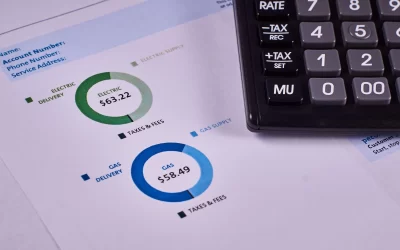Billing Software Enhances Productivity

Efficient billing and invoicing processes are crucial for any business. Manual billing methods can be time consuming, error-prone, and inefficient, leading to delayed payments and financial discrepancies. With the advent of billing software, businesses can streamline their operations, enhance accuracy, and improve overall efficiency. In this blog, we will explore how billing software can optimize business processes and drive productivity.

1. Automating Invoicing and Payment Processing
Billing software automates the entire invoicing process, reducing manual work and human errors. Businesses can generate invoices quickly, set up recurring billing, and send automated payment reminders, ensuring timely payments from clients. This automation enhances cash flow management and minimizes administrative overhead.
2. Reducing Errors and Enhancing Accuracy
Manual billing can lead to miscalculations, incorrect tax entries, and missing payment details. Billing software eliminates these issues by ensuring accurate calculations, applying appropriate taxes, and maintaining detailed records. With built-in error-checking mechanisms, businesses can avoid costly mistakes and disputes with clients.
3. Streamlining Financial Management
Billing software integrates with accounting systems, providing real-time insights into financial transactions, revenue, and outstanding payments. Businesses can track income, expenses, and profitability in one place, allowing for better financial planning and decision-making.
4. Enhancing Compliance and Tax Management
Tax compliance is a critical aspect of business operations. Billing software helps businesses adhere to tax regulations by automatically calculating applicable taxes, generating GST-compliant invoices, and maintaining accurate records for audits. This ensures businesses stay compliant with financial regulations while reducing the risk of penalties.
5. Improving Customer Experience
A smooth billing process enhances the customer experience. With features like digital invoices, multiple payment options, and automated payment reminders, businesses can ensure hassle-free transactions for their clients. Customers appreciate a transparent and professional billing system, which fosters trust and long-term relationships.
6. Saving Time and Operational Costs
Automating billing processes saves significant time for businesses. Employees no longer need to spend hours preparing invoices, tracking payments, or handling billing disputes. This efficiency allows businesses to allocate resources to core activities, ultimately reducing operational costs and increasing productivity.
7. Enhancing Data Security and Backup
Billing software offers secure cloud-based storage, ensuring that financial data is protected from unauthorized access or data loss. Regular backups and encryption features provide added security, keeping sensitive business and client information safe from cyber threats.
8. Customization and Scalability
As businesses grow, their billing requirements evolve. Billing software offers customizable templates, multiple currency support, and scalable features that adapt to business needs. Whether managing a small startup or a large enterprise, billing software can be tailored to suit specific requirements.
Conclusion
Billing software is an essential tool for businesses looking to enhance efficiency, accuracy, and compliance. By automating invoicing, reducing errors, improving customer experience, and streamlining financial management, businesses can optimize their operations and focus on growth. Investing in a reliable billing software solution can lead to better financial control, improved cash flow, and long-term business success.


